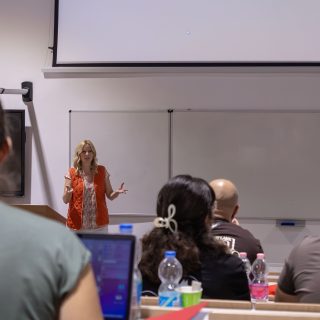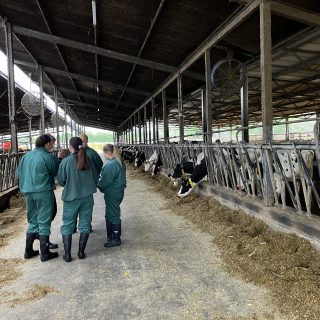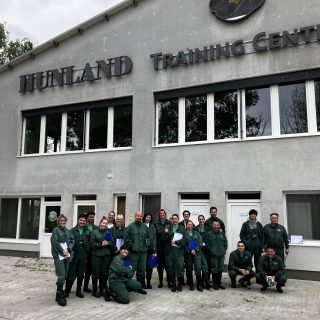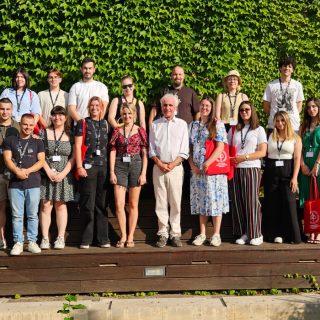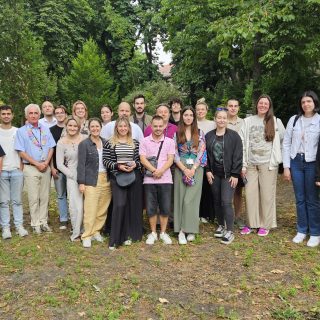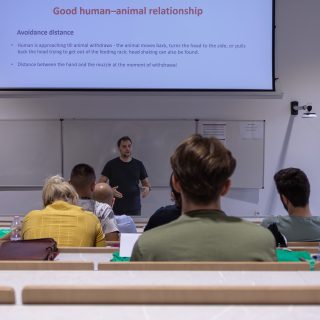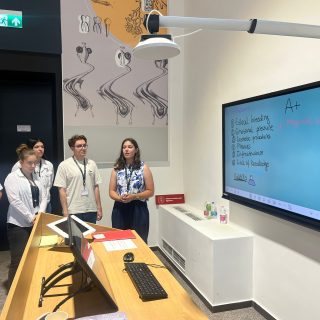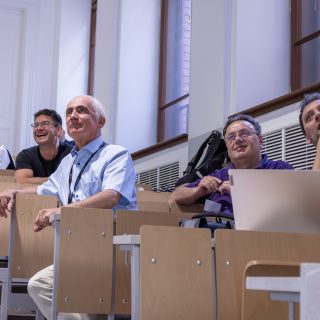Between July 6 and 11, the University of Veterinary Medicine Budapest hosted the VetNEST Summer School for the very first time. This was already the sixth edition of the program, which focuses on animal welfare, veterinary ethics, law, and communication skills. The idea is to help students recognize, structure, manage, and communicate the challenges they’ll face in their future work.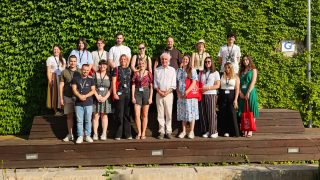
VetNEST was founded back in 1993 by several European veterinary schools and faculties (Vienna, Brno, Košice, Ljubljana, and Budapest). This year, the summer school was organized by our university’s International Relations Office, together with the Ss. Cyril and Methodius University in Skopje (North Macedonia), its Faculty of Veterinary Medicine, the Faculty of Veterinary Medicine at the University of Zagreb, and the University of Veterinary Medicine Vienna.
In traditional veterinary education, subjects like animal welfare, ethics, law, and communication are often taught separately, usually in lecture form. But in real-life professional situations, these topics are closely linked. The summer school bridges this gap with an integrated program, where different areas build on each other and connect.
Thanks to the CEEPUS international mobility program, 19 students joined from Hungary, North Macedonia, Poland, Albania, Austria, Croatia, the Czech Republic, and Bosnia and Herzegovina. Completing the course earned each of them 3 ECTS credits.
Over five days, students from different countries and cultures worked on case studies from animal welfare, ethical, legal, and communication perspectives. This hands-on approach is much more practical than traditional lectures. It helps students learn how to make decisions in complex situations – ethically, legally, and with effective communication – while also putting theory into practice.
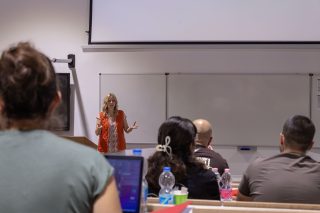 The professional team from our university was led by the Animal Welfare Center. On the opening day, July 6, Dr. Hedvig Koska, deputy director of the center, gave a lecture on animal welfare education. On July 7, Dr. Szilvia Vetter, head of the Center for Animal Welfare Law, Analysis and Methodology, spoke on “Fatal Connections,” exploring the links between cruelty to animals and violence against people from legal, criminological, and social perspectives. Later in the week, Dr. Viktor Jurkovich gave a lecture on animal welfare, and Dr. Anna Szilasi delivered a law-focused course on animal abuse from the Department of Pathology on July 8.
The professional team from our university was led by the Animal Welfare Center. On the opening day, July 6, Dr. Hedvig Koska, deputy director of the center, gave a lecture on animal welfare education. On July 7, Dr. Szilvia Vetter, head of the Center for Animal Welfare Law, Analysis and Methodology, spoke on “Fatal Connections,” exploring the links between cruelty to animals and violence against people from legal, criminological, and social perspectives. Later in the week, Dr. Viktor Jurkovich gave a lecture on animal welfare, and Dr. Anna Szilasi delivered a law-focused course on animal abuse from the Department of Pathology on July 8.
Beyond lectures, students also had the chance to spend a full day in the field on July 9 at the Hunland farm, guided by Dr. Jurkovich.
Alongside the academic program, social activities were also part of the week. On July 6, participants were welcomed with a dinner, and on July 10, students and guest lecturers enjoyed a community dinner combined with a Danube boat trip.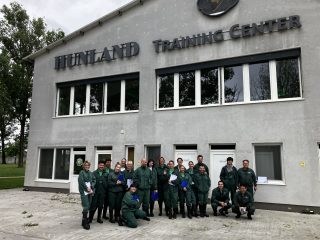
Both guest lecturers and students gave very positive feedback, calling this year’s Budapest summer school the best organized so far.
Next year, the Faculty of Veterinary Medicine at the University of Ljubljana will host the 2026 edition, likely in September. Thanks to the CEEPUS program, our students will also have the opportunity to take part.

